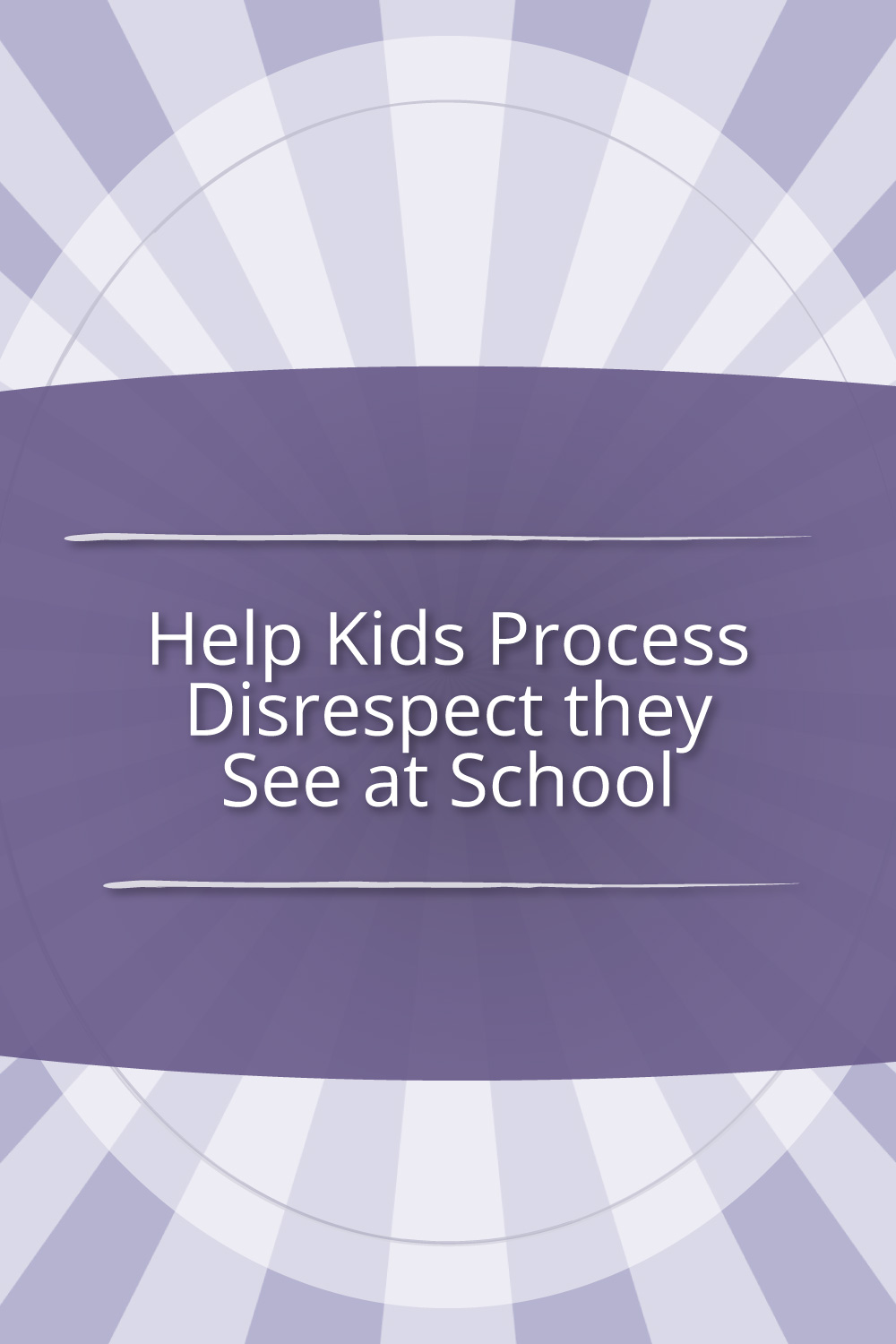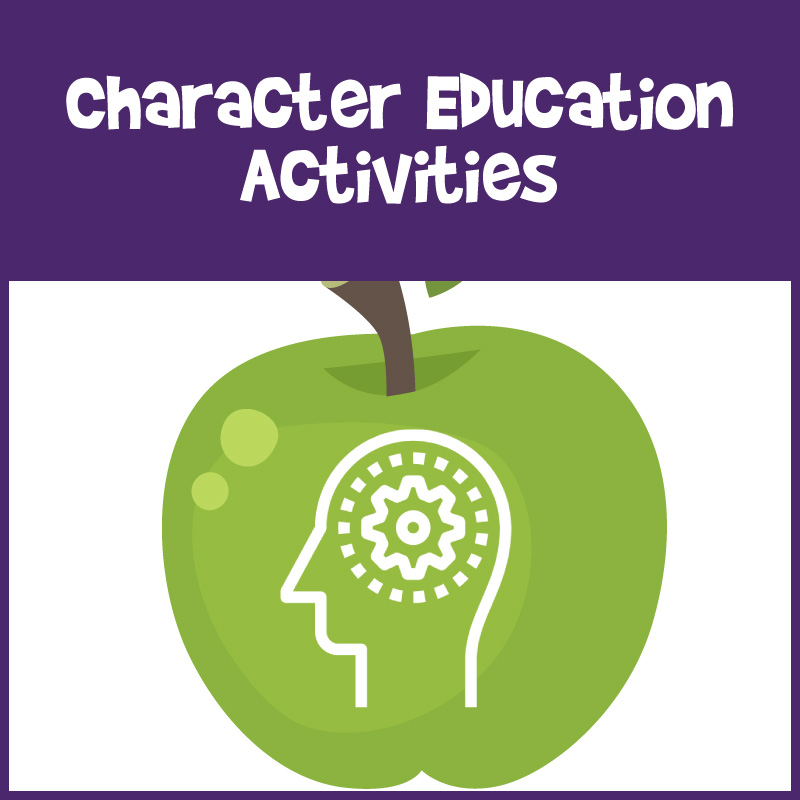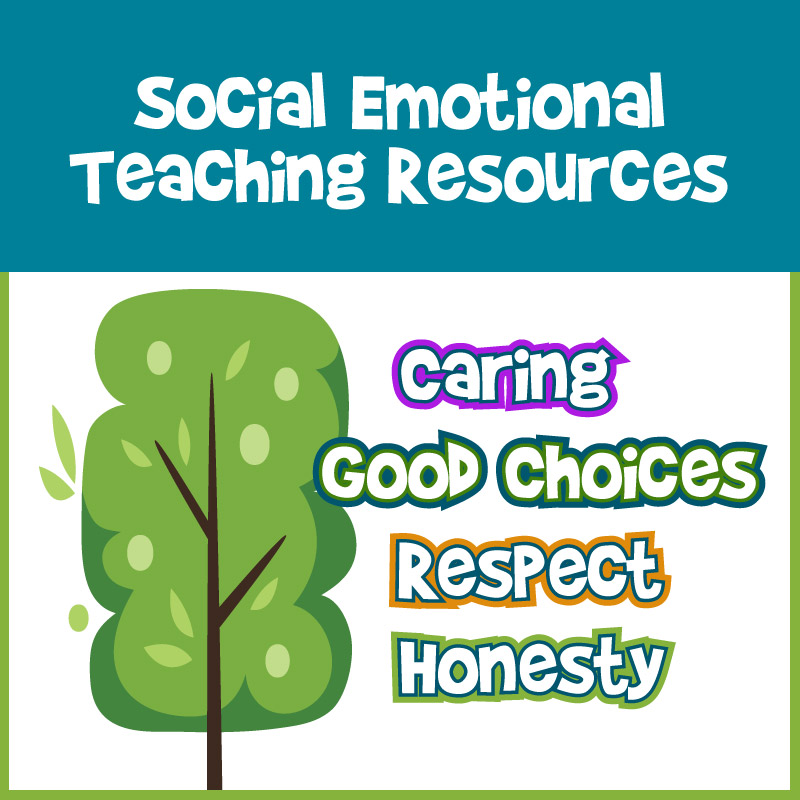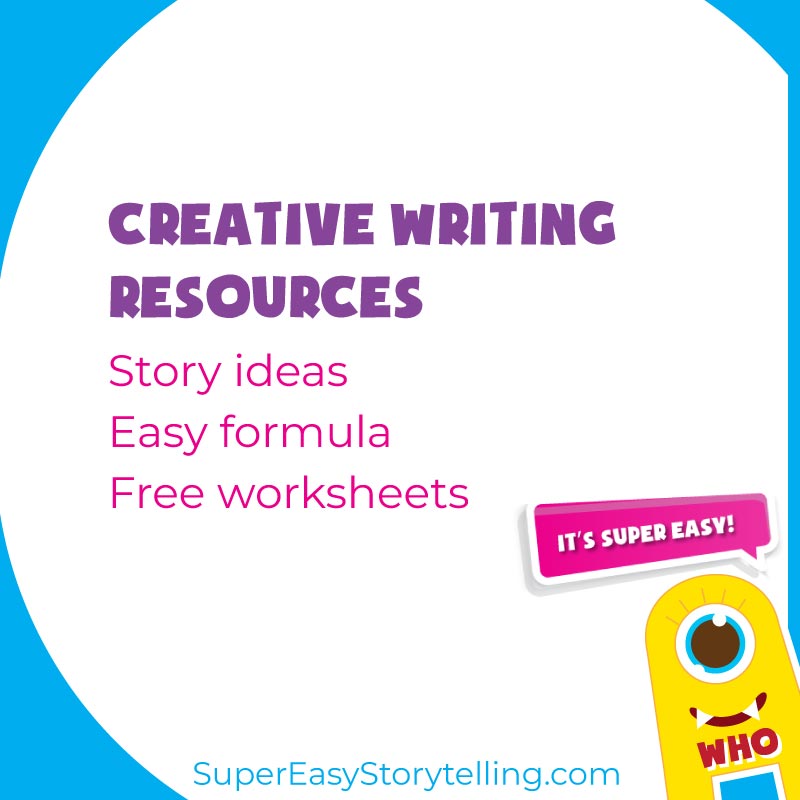Helping Kids Understand Disrespect at School
Social Emotional Learning / Values Strategies

Everyday my daughter comes home from school with tales of kids being disrespectful to teachers, kids doing mean things to each other, kids not being honest, responsible, or caring… basically she sees examples every day of people doing all sorts of things that go against what we have taught her is “right”. She is often agitated and bursting to talk until she has finally drained every last detail of the events of her day. While this can feel overwhelming and a bit gossipy to the parent, it’s actually an important part of learning and gaining self-confidence. What’s really going on, is that my daughter is decompressing and gaining reassurance that she’s understanding and reacting appropriately to all these choices that go against what she knows is morally right.
How to support good character in a world full of bad examples
The fact is, children are under a lot of stress from a constant
barrage of new situations. Children come home amped from the
charged energy of these situations, and from their own internal conflict about them. As she spews event after event, my daughter is releasing tension, while also looking to reconcile the reality she sees around her with the character values we’ve taught her.
As a parent, how can you help your children feel self-confident in these situations? You can help them feel confident that they know how to handle them in a way that lines up with their beliefs about right and wrong.
(By the way, aligning behavior with ones beliefs about right and wrong is the key to building kids' self esteem. Learn more in What is Self Esteem?)
1. Listen
The first thing to do is just listen. If they want to talk, let them talk-- without feeding their agitation. What I mean is, when you act shocked and outraged, you feed your child’s sense of shock and outrage. “Oh my gosh. She said that to the teacher!?! I can’t believe she could be so rude!” will only fuel the fire. This is a time to simply acknowledge that you hear them.
Instead, try, “What do you think about that?” or “How did you feel when you saw that?” This encourages your child to keep talking so they can process their emotions.
It's also not time to problem solve. Give it a minute and we'll get to that later.
2. Reassure
Next, offer reassurance without judgment. If you start condemning the other child, you focus on the negative and can get your child all riled up again. Instead, focus on the behavior you want to encourage in your own child which will also give them the answer they are really looking for: that they have understood the situation in a way you'll agree with, and that you will be proud of how they are understanding it. Try: “I’m glad that you have respect for your teacher.” or “I’m happy you know that treating someone that way is hurtful.”
3. Encourage Growth
Every challenge is an experience that helps us figure out who we are, or who we want to be. When my daughter is treating her brother unkindly, I’ll often ask her, “Is that the kind of person you want to be?” Sometimes to know how we want to act, we have to see how we don’t want to act. Negative experiences are a great way for children to learn empathy so they can adjust their own behavior. Try these questions to draw out your child's thinking and help them figure what they think is right and wrong:
“How do you think she felt about that?” or “How could you handle that situation?”
I’m not a trained expert, so there’s my disclaimer. This is what works for us. It helps calm things down and create an opportunity for learning and growth.
Colleen Doyle Bryant
Colleen Doyle Bryant is the author of five books and more than 50 learning resources about making good choices for the right reasons. Her Talking with Trees series for elementary students and Truth Be Told Quotes series for teens are used in curricula around the world. Rooted in Decency, Colleen’s most recent release, written for an adult audience, explores how the decline in common decency is affecting wellbeing, and how we can build more trust and cooperation. Learn more at ColleenDoyleBryant.com





